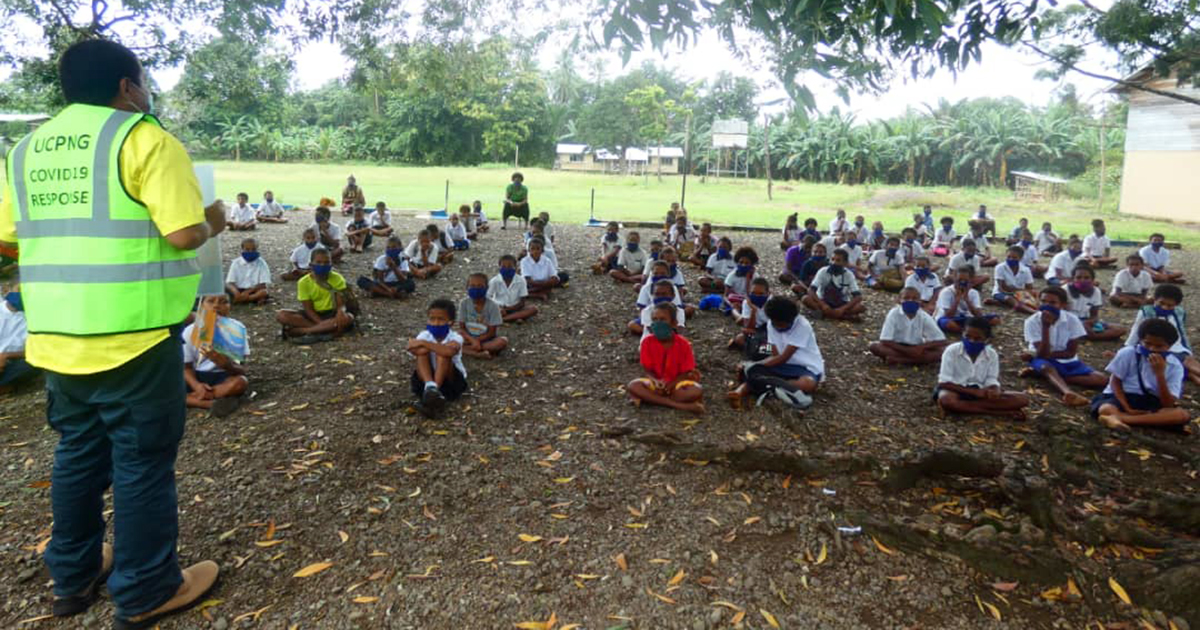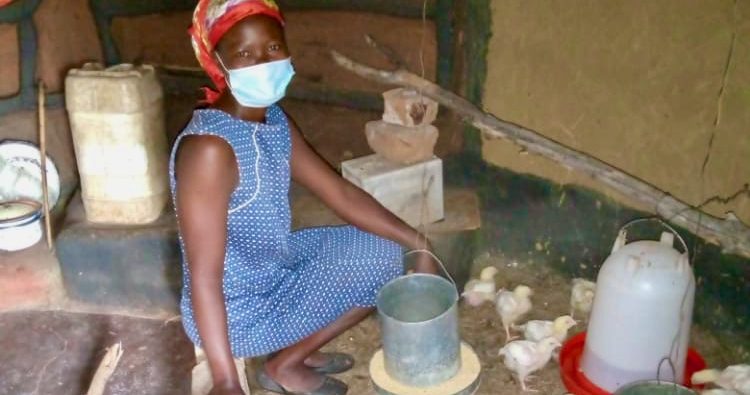|
Are you angry during the pandemic? How do you make peace with anger?
Rev Dr Mery Kolimon is Moderator of GMIT, our partner Church in West Timor, Indonesia. Throughout the pandemic, she has shown leadership in public health and coordinated the emergency relief program after the devastation of Cylone Seroja. I encourage you to read Rev Dr Kolimon’s full reflection below, a truly insightful exploration of God’s presence in the midst of our suffering. I believe the ‘theology of the body’ she articulates is deeply inspirational for Uniting Church members, particularly those living in regions under lockdown.
-Rev Dr Ji Zhang, Uniting Church in Australia Assembly Theologian-in-Residence
|
At the end of June 2021, my husband began to feel unwell: colds, coughs, weak body, loss of taste. At that time Kupang was windy and the weather was unstable: sometimes hot, sometimes cold. So my husband thought it must have been a cold caused by tiredness from his schedule of long meetings.
I had previously reminded him: “Work should not be too late, too long or too often. It’s a pandemic. Masks should be replaced frequently. If you go home, change your clothes immediately.”
By the end of that week my daughter rang when I was in the office to say she also felt unwell, and I hurriedly finished my meeting and rushed home.
While my husband was still reluctant to test for Covid-19, believing it just to be a cold, I insisted that we were swabbed and we soon found out that our entire family was positive. Our nephew, Efi, tested negative – Praise God! As long as we were sick he was able to take care of us.
Making peace with sadness and anger
When I found out the result, I felt angry. Why had we not been more careful? Our kids have been learning from home for over a year, but as parents we were always at work, even though as a Synod we help educate others about how to be safe. Often we have adhered to health protocols. But there are times when we are off-guard, such as unmasking to take pictures and eating together in meetings. Everyone should be more vigilant.
It took me a few days to come to terms with the anger and sadness.
We both know we are lucky to have been vaccinated, because while there is still risk of infection, the impact is not as severe. The four of us did not have problems with breathing, something we’re very grateful for.
We also learned once again that the impact of Covid-19 is more pronounced for older people. My 17-year-old daughter lost her sense of smell and had difficulty eating, but it wasn’t as bad as for my husband and I, who had body pain for days. Alberd, 9 years old, had fever and vomiting, a loss of sense of taste for several days and a lack of appetite. Alberd’s spirits stayed high though and he was a great comfort to us.
The Light of God’s Love
On the third day after being declared positive, our situation was quite severe. Our whole bodies hurt, we couldn’t drink or eat; we had fever, nausea, scalp pain. As a Mama, I had difficulty taking care of the family or paying attention to church affairs. I was worried about many post-Cyclone Seroja agendas in GMIT that needed to be taken care of and plans with ecumenical partners and congregations on various islands.
I almost cried in bed. My God, why am I having this experience?
I thought about what might happen if I couldn’t get through this Covid – my mind was everywhere as I imagined how things would be with GMIT. Within our five Daily Synod Assemblies, three people were also infected at the same time as me; all have now improved.
When it all felt very heavy, I told my daughter who was also having difficulty eating:
“Our Covid situation is like walking into a dark alley without knowing if we will ever get out of that dark alley safely. Although it is very dark, one day we will see light at the end of the hallway, as long as we believe that there is light at the end of that dark passageway. Come on, keep eating.”
She replied: “Mama’s dark hallway analogy is horrifying but true.””
We experienced the light of God’s love in many ways: people came to give care and support; some sent Bible verses and messages; my sisters at SoE sent the medicines we needed; others sent herbal remedies; Oepoi Health Center always contacted us to ask about our situation; the Governor of NTT called and sent Chinese medicine; Tanta Yo from the Synod Office guest house cooked for us for a week. There was a friend who sent Timor Island’s best honey; there was a friend who transferred money and said don’t get dizzy with the thought of medical expenses. Fruits and vegetables flowed from all directions.
We really experienced in these dark times the light and warmth of love – even while we struggled with nausea, fever and night sleep disorders, every day we experienced God loving us. Thank you to all who shared the light with us when the night was so intense and we lived as though in a great storm.
What sin?
A question asked by a group of GBI pastors arose: “Are we affected by Covid-19 because we have betrayed the Lord Jesus like Judas Iscariot?”
This way of thinking is very closely related to the understanding of the relationship of disease and curses in our culture. For example, among West Timorese there is a naketi concept. A person can be afflicted by adversity such as illness because there are certain sins or mistakes. Sin is seen as so powerful that it can jump across generations. Children and even grandchildren a few generations later can get sick because of the sins of their ancestors. To be healed, it is necessary to confess sin.
I myself struggled with the same question as I lay in bed: “What sin have I and my family committed?”
I reflected that perhaps we did not do enough to wear the masks correctly and keep a distance. I also prayed that if something was wrong, the Holy Ghost would rebuke us so that we realized it, opening our hearts to understand His will through the pain we experienced.
But I could not accept the idea that we were so sinful that we were punished with Covid.
I wrote to a fellow pastor who had shared his concern:
“Reverend, test all voices … I remain a believer in all seasons of life, and God’s faithful love is eternal. He allows us, His servant ministers, to experience this like any other person, that we may also experience the deification of the world today and find that even in the valley of darkness, God has not forsaken His creation.”
Shepherd Infected with Covid-19
In 2015 I was elected chairperson of the Synod. I remember one of the intercessory prayers when I was elected was that I would not be sick for four years while I led the church. I wanted to always look good, healthy, and happy, and refused to allow myself to be sick. I promised to live a healthy life with a good diet, rest, exercise, and management of my mental health.
But early in 2019, due to exhaustion, I suddenly got sick quite seriously.
I told my husband one morning: “Yustus, I can’t lift my legs. Help me.”
Friends who came to visit me advised me: “Mery, it doesn’t matter if you’re sick. The body needs rest too.”
In the second period of my shepherding ministry now, I have come to terms with my body more, to embrace fatigue, rest, and pain.
When I was infected with Covid, I learnt to better understand the deepest fears, anxieties, and worries of those who are sick. I was infected in the second wave in Indonesia, when every day there was news that 20,000 to 30,000 Indonesians were infected and more than a thousand people died because of Covid.
Every morning from the bedroom when we woke up, we heard birdsong from our beautiful courtyard, but also sirens roaring in a hurry to deliver the bodies to the cemetery. A shepherd who suffers herself is allowed understand mankind’s deepest fears in front of menacing diseases, and learn to say the most honest prayers to God during threat of sickness and death. But if she is sensitive, she can also see and follow God’s unceasing care. Birds singing, brothers caring, comrades supporting. Life isn’t just about crying and anxiety. In life there is also friendship, love, and genuine care.
As theologians, we often preach too quickly about certain circumstances. We want to directly write and connect Covid with bible verses so that we are able to lecture others. The experience of having Covid helped me not to rush to jump to certain theological conclusions.
Instead, in suffering:
Listen to your body language. Feel the heart. Listen to your own feelings and anxieties. Listen to your deepest hopes and longing. Talk to God honestly and listen to what God is saying. Start theology from there. Connect the experiences of suffering, anxiety, hope, and longing with the struggles of the faithful in biblical times. Learn the deepest struggles of today’s people, and see what can be learned as the gospel message for mankind’s struggles today.
Body Theology
A female pastor friend who served in one of the church denominations in Kupang City, wrote to me thus: “Mama, I am still struggling with the issue of concentration. Although it has been 2 months since my COVID illness, assignments from the campus are abandoned. Although I still can write, it is at a creeping speed… According to some friends who are over 50 years old, COVID weakens the life spirit, and we become apathetic.”
I wondered whether a lot of people have experienced something like that? This is interesting to study and reflect upon theologically.
Our family does not yet know what the full impact of Covid will be: are our lungs going to be okay? What about our stomachs, our hearts, and our brains? How does Covid impact people long term?
This disease helps us to be more sensitive to the body as God’s noble and fragile work. Our bodies are glorious because they were created by God Himself in His image and likeness, and because man has fallen into sin. The realization of God’s redemption encourages us to hold our bodies accountable because the body is the fruit of God’s glorious work. The invaded body must be loved and cared for as a form of involvement in Christ’s work of redemption and restoration. The invaded body should not be forced to work beyond its means.
The virus may go after a certain time, but its traces will remain to teach mankind valuable life lessons to care for God’s created body and honor His given life. One of the theological agendas as a survivor of Covid is the journey towards self, to seriously care for and appreciate the body, soul, and spirit.
Being infected with Covid helped me to reflect more on body theology. The human body and life are theological sites. The body is where we meet God. The body comes from the ground and God has touched it to bring it to life: moving, walking, jumping, full of joy. There is also a time when the body is sick and sad. Because the body was created by God, we can meet God there, in all experiences of the body: sad, happy, sick, healthy. The body reveals something about the work of the glorious God. But the body is also limited. There’s a time when the body no longer exists. As long as the body is still there, I exist. When the body stops working, I am no longer in the world. Body theology helps us to honor and care for the body with gratitude to God who created it, until it is time for the body to return to the ground.
The Language of Faith in Times of Crisis
There is something interesting in my experience of spirituality in this time of crisis. I was raised as a child speaking two languages: Indonesian and Meto-Timorese. In childhood when we started attending school in the interior, our teachers used two languages for children who could not speak Indonesian. Everyday we learnt more of the regional language. For the sake of study, I also learned English and Dutch so that now I speak four languages: Indonesian, Meto, English, and Dutch.
In my deepest times of fear and anxiety, I prayed in Timorese. When I prayed in that mother tongue, I was able to express my deepest feelings. Sometimes I feel angry at myself for not being able to find a word in the language of the area for what I want to express. Now I am more fluent in Indonesian than the local language. But I really felt the depth of the experience with God in my mother tongue.
In that language I told God about my worries, about my family, the impact of this disease on my ministry, and my anxiety over all human civilization. Sometimes when praying during times of crisis using Indonesian or other languages, I wonder if maybe what I express is superficial. But when I pray in the language of the region, there are very deep things that are revealed to the Lord and to myself. The prayer became very personal between God and me.
I think this may be related to the experience of faith that shaped me. I grew up knowing God in a believing community in West Timor. My father, who was from Alor Island, married my mother, a West Timorese woman, and they worked in Timor until the end of their lives. I grew up as a child learning to know God, the Word, and his works in a strong community nurturing the culture and language of the region in that environment. I am reminded of the strong faith of my mother and grandmother formed by Timorese culture, the late Elder Banunaek of Oetoli in the Western Oinlasi Church who prayed for us when we were sick, or celebrated with us in the depths of the language of poetry. It was all absorbed into my heart. When I struggle with the deepest things, it’s this language that expresses all longing, hope, and anxiety.
Embracing Uncertainty, Learning to Know Boundaries
I no longer have a definite list of activities and a series of trips arranged in order and detail. My suitcases remain untouched, and now all of humanity finds itself experiencing uncertainty. There’s no plan that’s currently workable. People again study the Bible counsel: “For my design is not your plan” (Isaiah 55:8a).
Since the Enlightenment era, people have felt they can do anything. Mankind has thought with his brain that he knows all things and conquer all things in the universe: “I think, then I exist.” Human reason is considered very powerful.
But the Covid pandemic at the beginning of the third decade of this century is teaching us that humans and their abilities are limited. Even a virus so small and invisible to the eye can make an entire human civilization chaotic. Man is not omnipotent. Science and technology are important and very helpful. But human intelligence and technology must not make man act arbitrarily over the life of God’s creation.
I think Covid also teaches us humans to take a break from our ambitions and busyness. We’re stuck in an age where everything we do is rushed. Waking up early, our agenda is long and our plans are layered: after this we will continue with something else. Even before we finish one thing, the other is waiting. We force our bodies, souls, and spirits to keep running without adequate rest periods.
Covid interrupts our busy life. Covid invites us to pause: to take time for the body, for the soul and mentally, for the family, for the Lord, to rest. This disease gives us the opportunity to truly take shelter, submit to God, and submit our life plans to His sovereignty.
Ecological Repentance
For almost two years the earth has been left helpless. Perhaps it is rebuking us harshly and giving us a hard lesson?
As Thomas L. Friedman said in an opinion piece in the New York Times,May 30, 2020: “These past few weeks we have learned… our earth is fragile… Our pandemic today is no longer just a biological pandemic, but also a geopolitical, financial, and environmental pandemic.”
Without a radical change in our consciousness and attitude toward Mother Earth, we will experience even greater consequences than what we are feeling today.
The economic system of capitalism makes people compete for profit and accumulate capital. For financial gain, nature is mercilessly plundered. The rich get richer, the poor and nature is exploited. The uncontrollable virus is now alerting us to a disturbed balance of nature.
The Covid-19 pandemic is a wake up call moment for all human beings. All of us —governments, communities, businesspeople, politicians, anyone—should interpret it as an opportunity to come back to peace with the earth. We are in need of mass repentance for ecological justice. We must stop carrying out development that is solely oriented towards financial gain. Instead we need to commit together to a development oriented towards the sustainability of life.
Claiming Divine Power
Where is God when the whole world struggles with suffering? Does God care about the tears and suffering of the sick or the family’s hope for their brother’s recovery? Where is God when we fight to maintain the lives of our families who are infected by Covid-19? For the healed there is praise to the Lord, but what about those who die? Is God with those who died because of Covid-19? Are the dead unloved by God?
This pandemic invites the church into the midst of the struggle of human suffering. In this great pain, we are challenged to put our ears and hearts on, hear and feel the screams and moans of pain, and the lamentations of life. This pandemic is calling us to see the fragility and dryness of human life.
It is in this context that this year’s GMIT Synod Assembly developed our ministry theme for 2021 from Ezekiel 37:14. Ezekiel was called to be a prophet at exactly the most precarious moment in the history of the Israelic covenant: the destruction of Israel by Babylonia. In the vision in chapter 37, Ezekiel is taken into a valley full of bones. Like Ezekiel, we are not led to avoid disaster, but rather to stand up and acknowledge the existence of it. The Covid-19 pandemic is real, not a conspiracy of certain parties to seek self-and group advantage.
Moreover God gave Ezekiel the task of prophesying to the bones to live again. He was told to prophesy tothe ruakh/spirit of life to enter the bones in the valley. The Spirit is called from the four corners of the earth. Learning from Ezekiel, the church during this pandemic is tasked with voicing God’s intent for the world in disaster.
In human suffering, God does not leave us. The Spirit of Life is with His creation, the Spirit of God gives life and moves the bones that are already very dry (and there is no more life). Just as the work of the Holy Spirit blew when man was created (Gen. 2:7), God continues to work to give life to man. To His frightened and hiding disciples, Jesus was present and breathed His Spirit upon them, restoring them from worry, panic, and fear (Jn. 20:22). He calls us to repentance, learns from the sufferings of life for the restoration of relations with God, with fellow human beings, and with all creation. He heals us from the worries and anxieties of life.
Where is God in this pandemic? God is in human suffering.
He is in solidarity with those who are terrified in isolation rooms. He hugs the families who have lost their loved ones. God is pleased to use those who care for others as His co-workers for the ministry of salvation.
The message of the book of Ezekiel to the churches this year is that just as God calls Ezekiel to be a prophet in the wasteland, so we must continue to prepare to be ministers of God in this difficult time. On the cross of Jesus, God Himself acted to restore man. He entered into the valley of death as His son gave his life. But no suffering is eternal. No disaster lasts forever. Death has been defeated. Jesus has risen from the dead. God reigns, God cares, God is with us. Although the way of the cross feels very difficult, we must endure to stand by Him, true in faith, hope, and love.
Covid is not just a story about human fragility. Covid also tells about the divine power of God that is conferred so that we hold the promise of hope that He is with us. Even for those who die with Covid, their body is again united with the ground, lying in the everlasting light of God, in the promise of the inclusion of Jesus Christ, the Light of the World. ***
Rev Dr Mery Kolimon, Moderator, Evangelical Christian Church of Timor
Kupang, July 2021
P.S. Thanks to my husband and children as the first readers of this paper and for making corrections. A number of friends have read and given some important feedback. I am responsible for the content of this paper.
A prayer of the people of West Timor and Indonesia
By Rev Dr Apwee Ting, UCA Assembly National Consultant
| Lord
I kneel before you
carrying an immeasurable burden
my body is very weak
my heart is bleeding
from Covid-19
I am no longer embracing the bravery
fragility is what I know
I’m not chasing eternity anymore
day by day is in my sight
Laughter and crying
joyfulness and suffering
inseparable
Lord
come in my dream
presence in my suffering
be real in my loneliness
God
is not there
is here
in the midst of pandemic
giving Indonesia
hope and healing
I am no longer afraid of
paralysis
vulnerability
death
because
God is walking with me
Restoration is with me
|
Doaku buat Indonesia
Tuhan
pada Mu kubersimpuh
membawa beban tak terkira
tubuh terkulai
batin terkapar
oleh Covid-19
Kini kusadar
bukan lagi kegagahan kurengkuh
kerapuhanlah yang kudekap
bukan lagi kekekalan kukejar
keseharianlah yang kutatap
Tawa dan tangis
senang dan susah
tak terpisahkan
Tuhan
hadir dalam mimpi ku
datang dalam derita ku
nyata dalam kesendirianku
Tuhan
tidak lagi disana
Tuhan disini
ditengah pandemi
memberi Indonesia
harapan dan kesembuhan
Kelumpuhan
kerantanan
kematian
tidak lagi menakutkan
karena
Tuhan berjalan bersama ku
pemulihan ada pada ku |

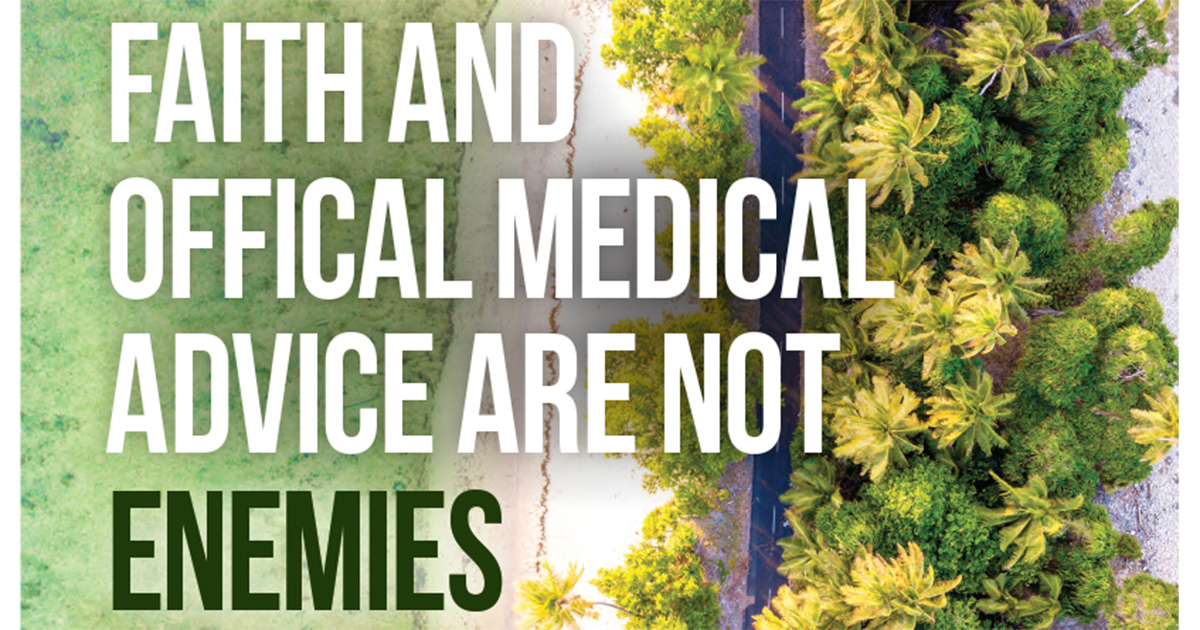

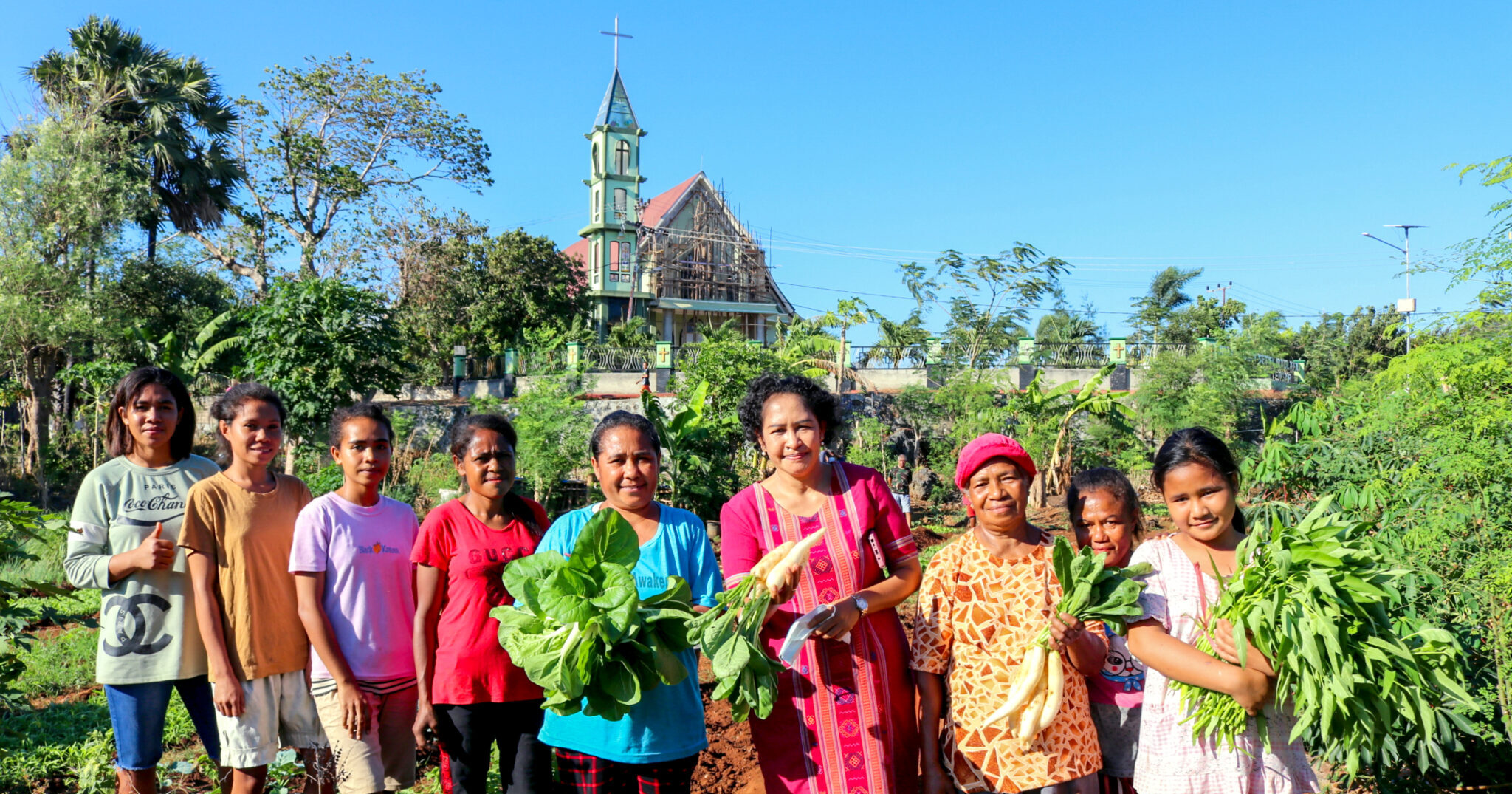
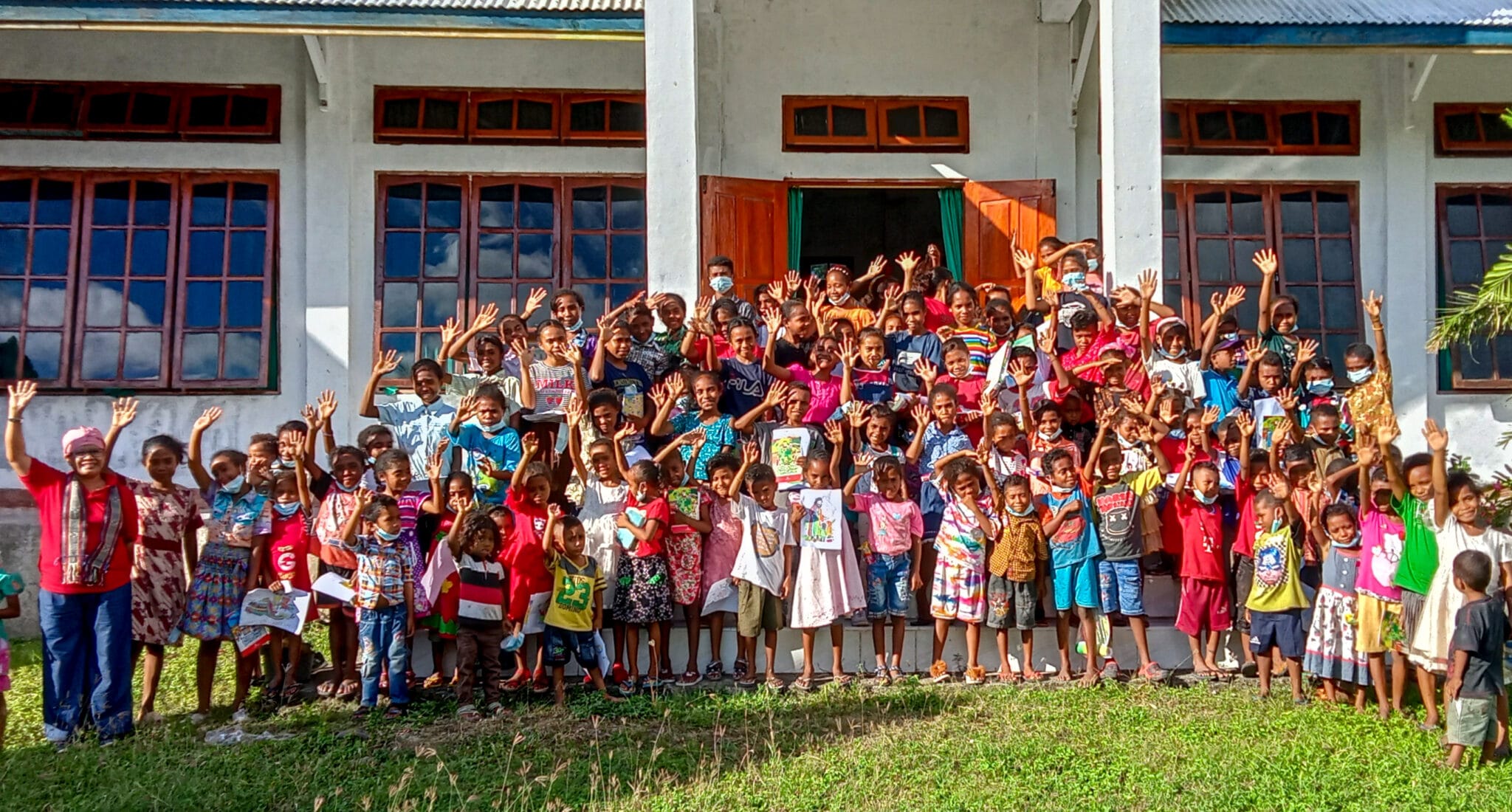
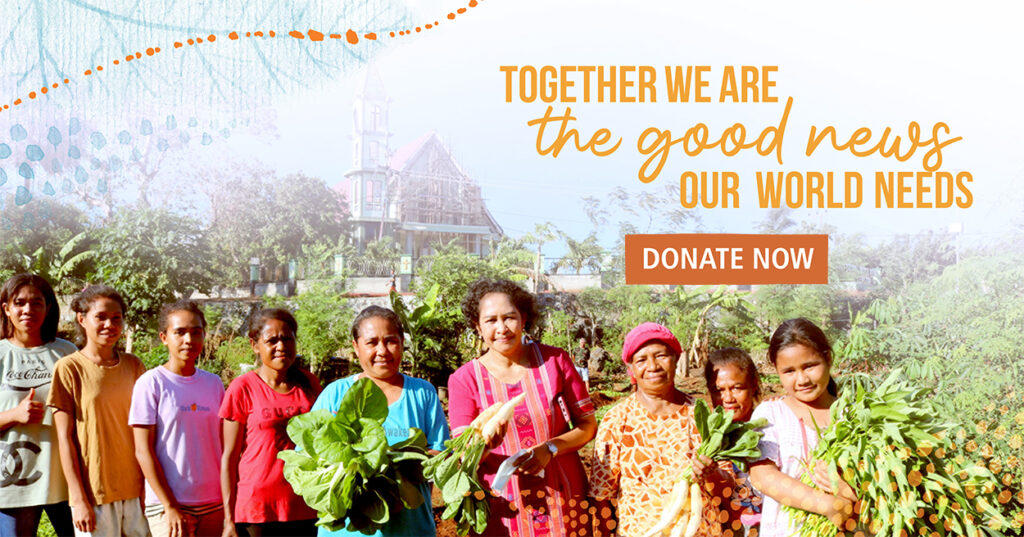
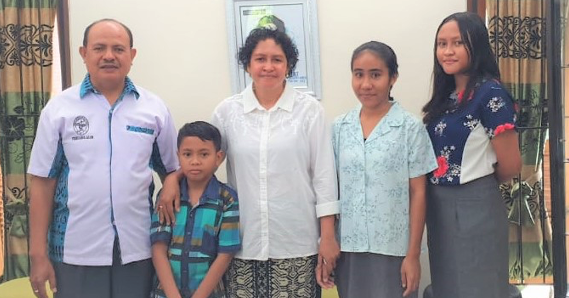
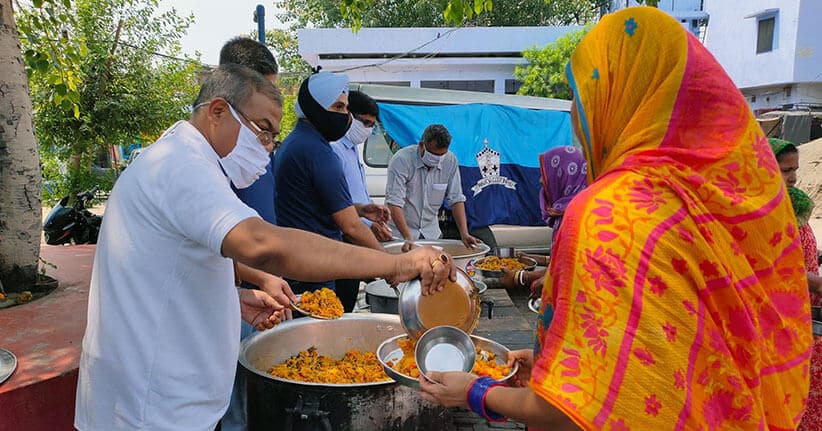
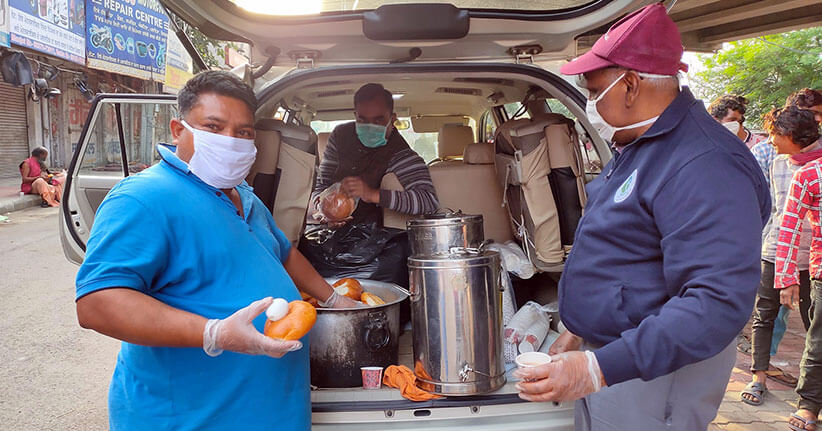

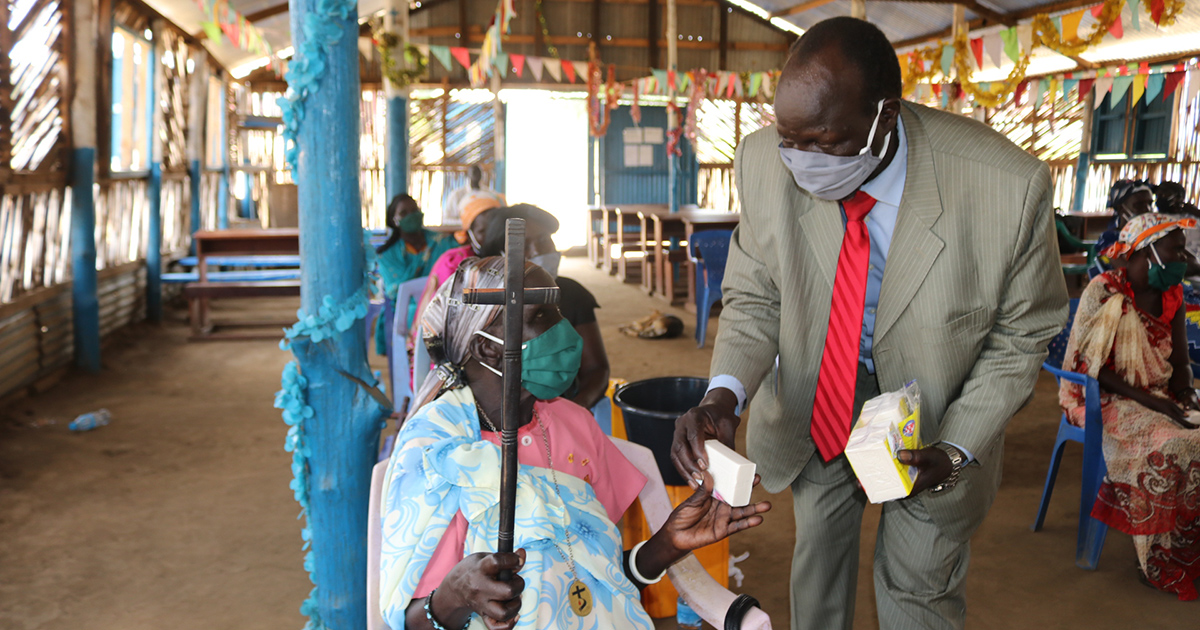

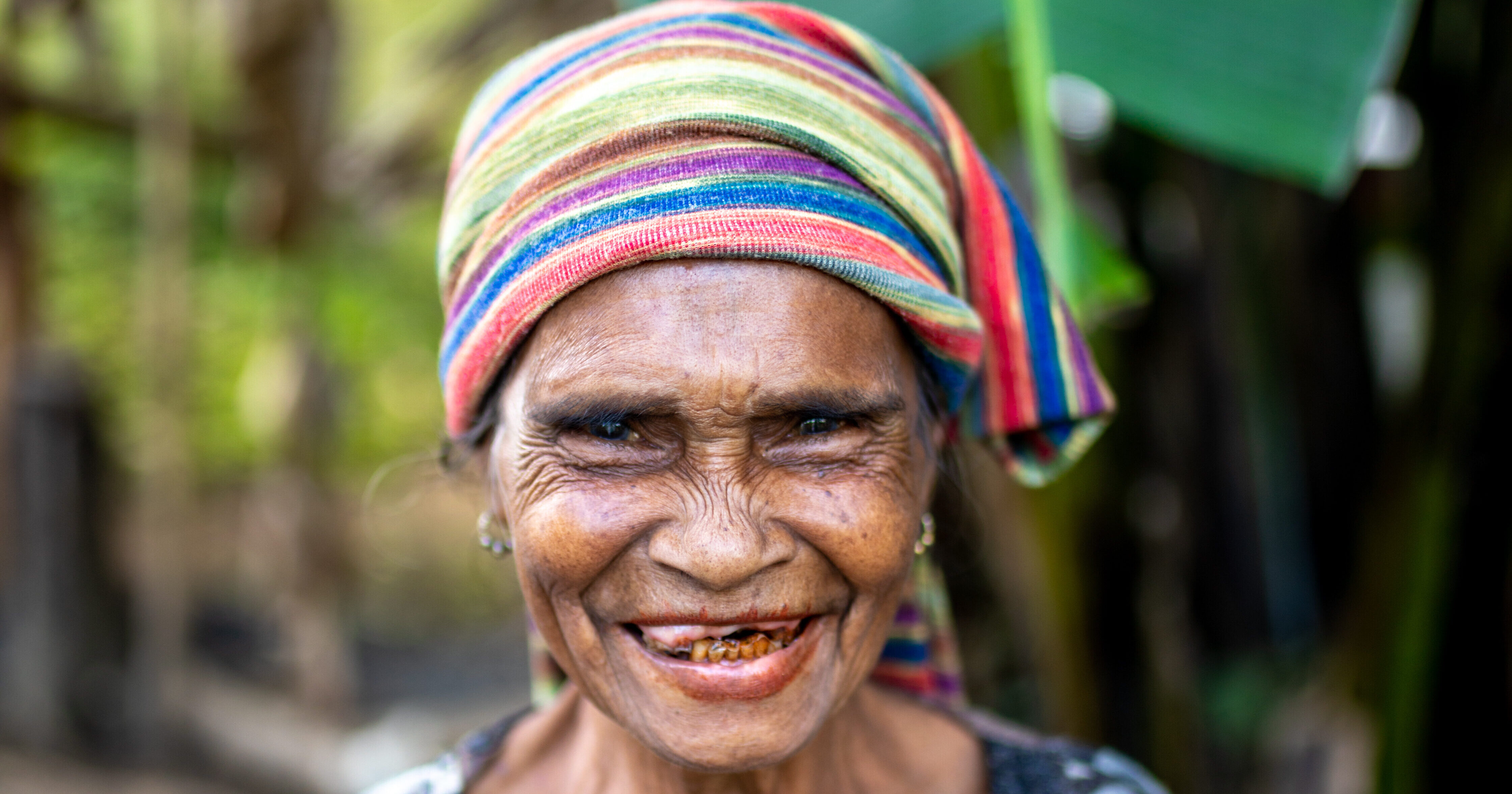
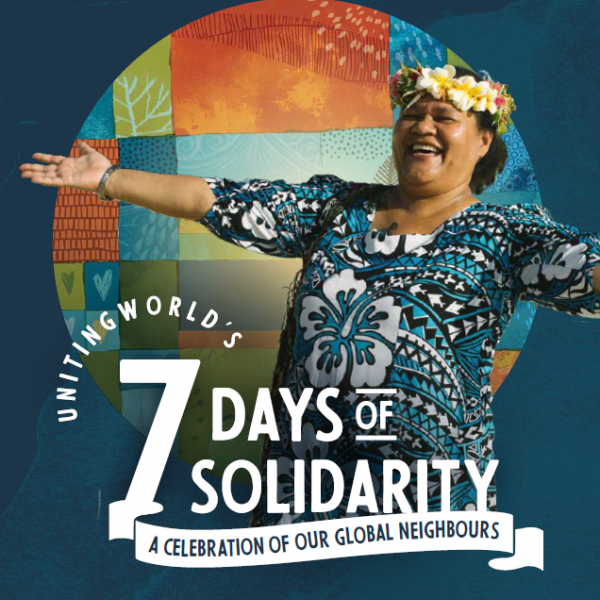 UnitingWorld is calling congregations to learn and celebrate in a new initiative called Seven Days of Solidarity.
UnitingWorld is calling congregations to learn and celebrate in a new initiative called Seven Days of Solidarity. 